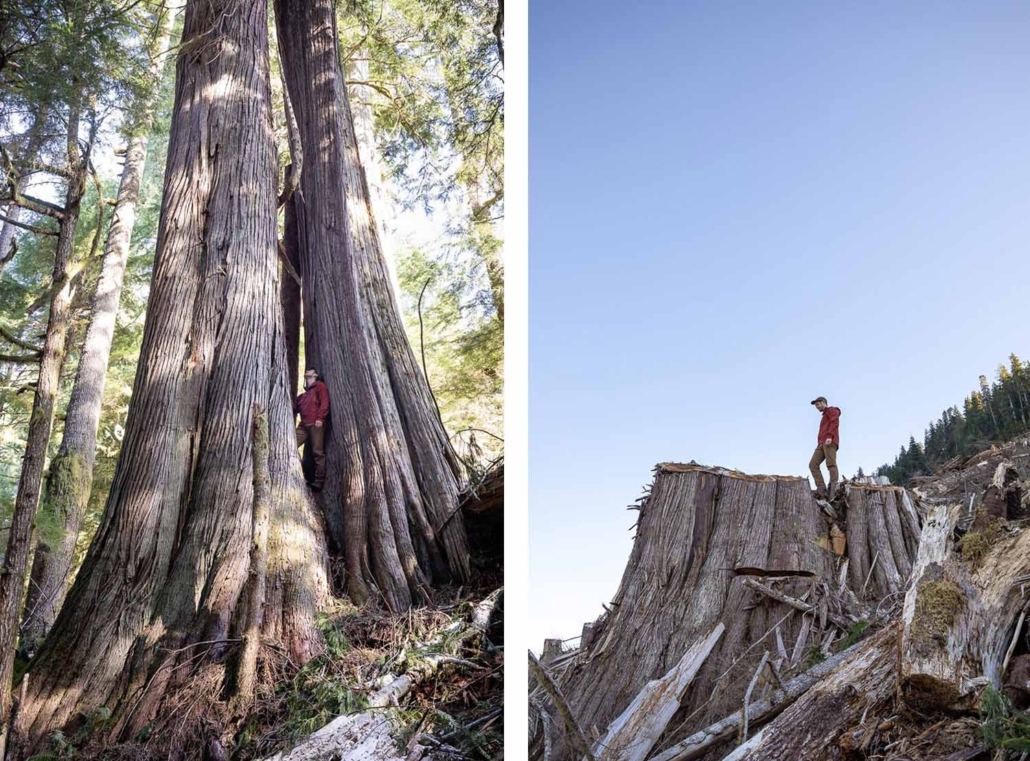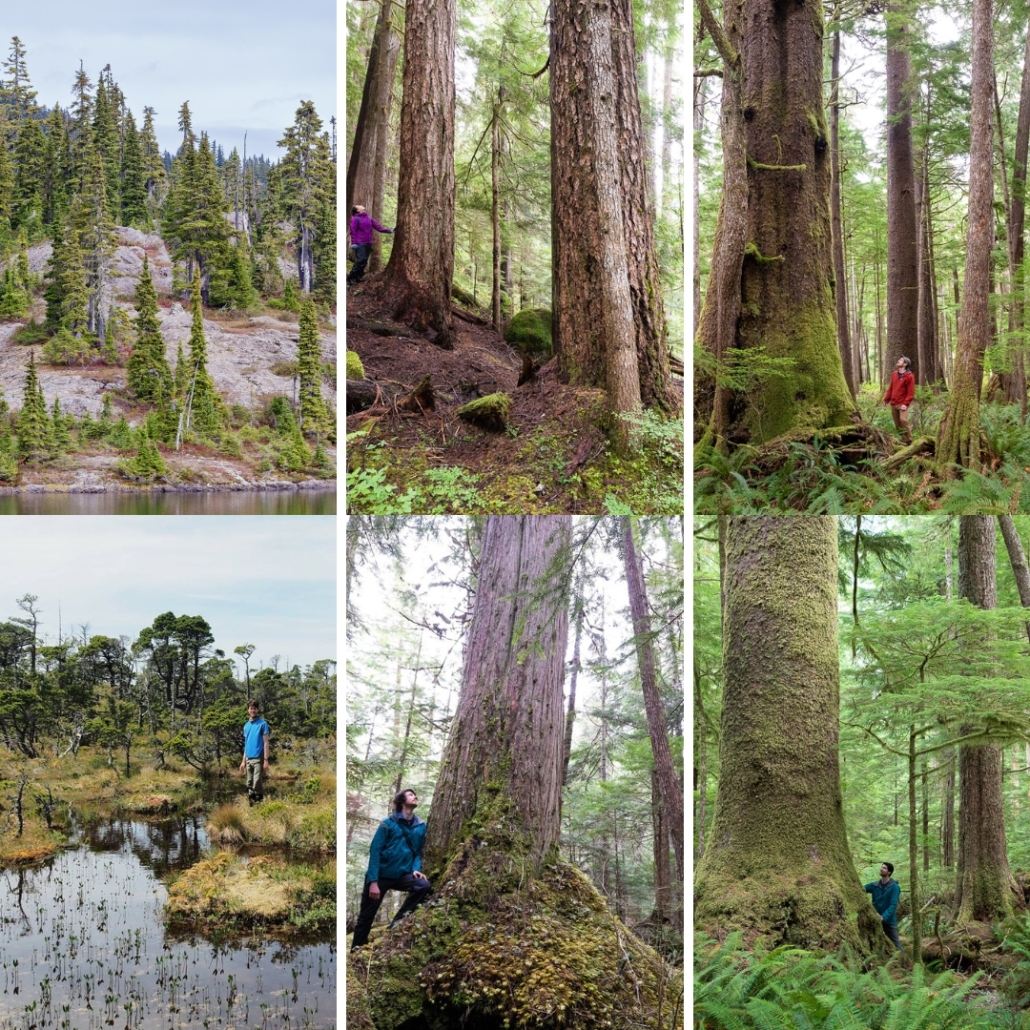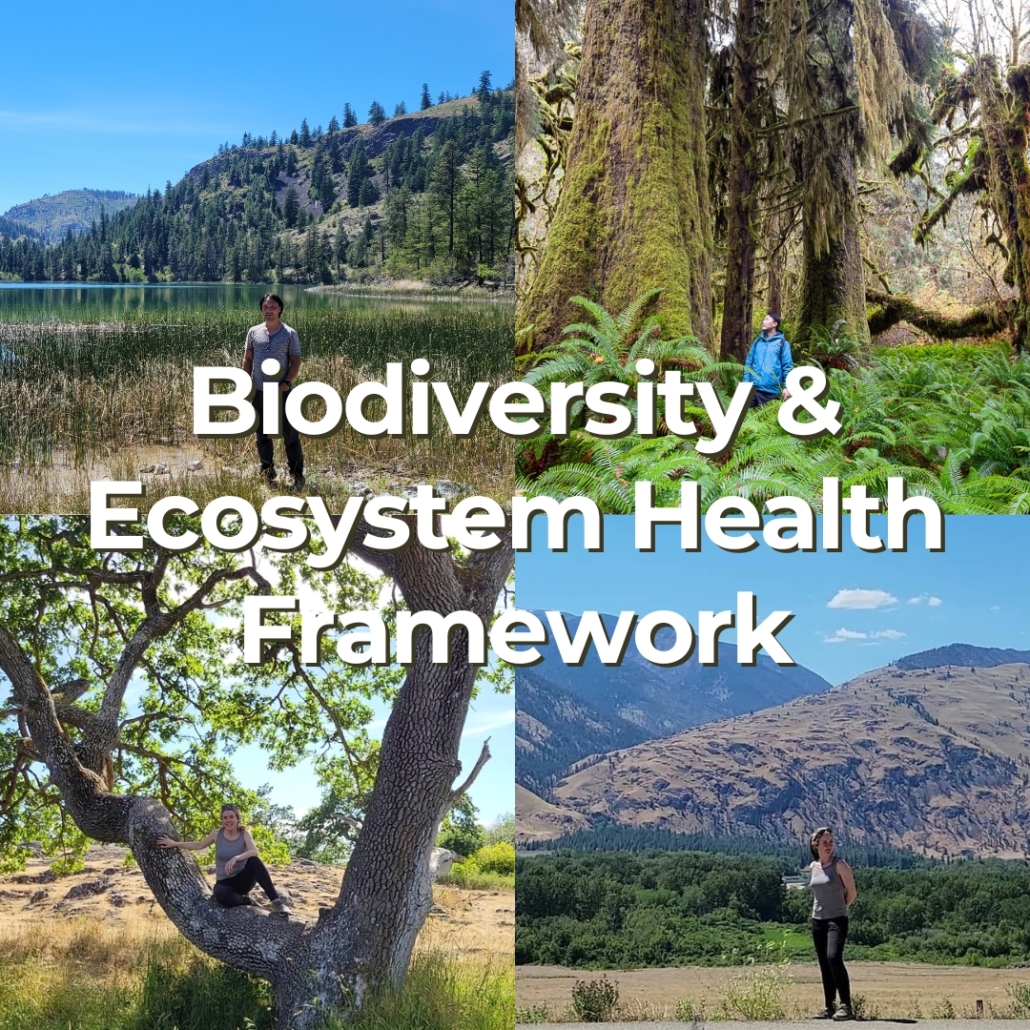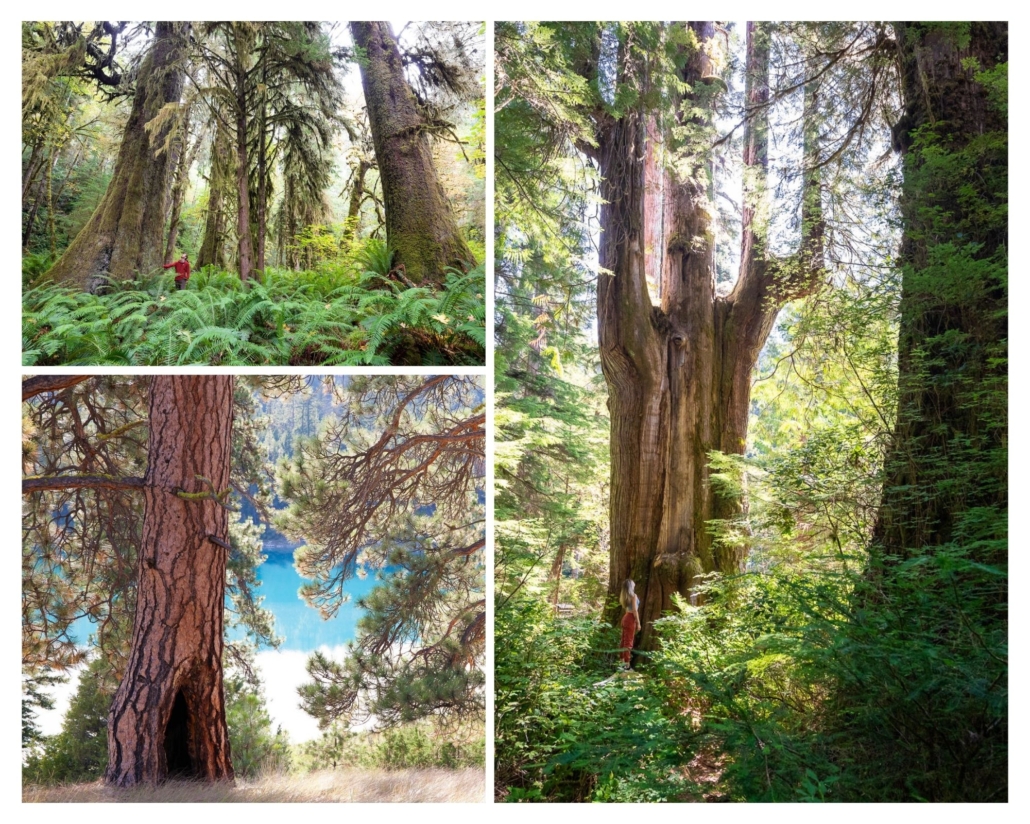 Jun 14 2019
Jun 14 2019ACTION ALERT: Speak up for Ancient Forests. Submit your Feedback on Budget 2020 Before June 28th!
Suggested wording for your submission:
Across British Columbia, old-growth forests have significant economic, social, and environmental value.
Old-growth forests:
• Support unique and endangered species that cannot flourish in second-growth forests;
• Are vital pillars of BC’s multi-billion dollar tourism industry, with tourists coming from around the world to visit BC’s old-growth forests and parks;
• Are vital to many First Nations cultures;
• Store vast amounts of atmospheric carbon, potentially allowing local communities to benefit from rapidly expanding carbon markets;
• Supply clean water for communities and for wild salmon, which in turn supports commercial and recreational fisheries; and
• Are important for non-timber products, such as mushrooms, wild berries, and medicines.
Studies have shown that keeping old-growth forests standing can provide a greater overall economic benefit than cutting them down when factoring in the values listed above. Across British Columbia, local communities stand to gain greater revenues and jobs by protecting nearby old-growth forests.
A century of industrial logging has reduced BC’s remarkable old-growth forests to a fraction of their original extent. Today, almost 80% of the original productive old-growth forests on BC’s south coast have been logged, including well over 90% of the highest productivity forests with the greatest biodiversity and biggest trees. As more of BC’s carbon-rich old-growth forests are logged every year, unique species and entire ecosystems are being pushed to the brink of collapse.
I therefore recommend the BC government prioritize the conservation of endangered old-growth forests in its 2020 provincial budget by:
1) Establishing a dedicated $40 million per year BC Natural Lands Acquisition Fund to purchase private lands of high conservation, scenic, cultural, and recreational value from willing sellers to add to BC’s parks and protected areas system. This $40 million annual fund should increase by $10 million/year until the fund reaches $100 million/year.
A $40 million Natural Lands Acquisition Fund would amount to only 0.07% of BC’s approximately $60 billion annual budget and would generate significant financial returns for the province. In fact, studies have shown that, for every $1 invested by the BC government in our parks system, another $9 is generated in the provincial economy through tourism revenues.
British Columbia’s most endangered ecosystems are often found on privately-owned lands, many of which are under threat from logging and real estate developments. Private land trusts, while important, are simply unable to raise enough funds fast enough to buy all of BC’s endangered private lands before many of them are destroyed. The BC government must develop a comprehensive, strategic plan with sufficient, consistent government funding to protect endangered ecosystems on private lands before they are lost.
2) Contributing funding toward the sustainable development and economic diversification of Vancouver Island First Nations communities in lieu of old-growth logging, tied to the creation of Indigenous Protected and Conserved Areas (an initiative known as conservation financing).
Many First Nations communities on Vancouver Island make significant revenues from old-growth logging, yet lack a range of alternative economic development opportunities that would support their local economies into the future and allow them to transition away from old-growth logging, should they wish to. In order to protect old-growth forests, create jobs, and improve community wellbeing, the BC government should support conservation financing solutions as an alternative to old-growth logging, similar to the $120 million (including $30 million in provincial funds) provided to First Nations in the Great Bear Rainforest in support of ecosystem-based management in that region.
This is a fundamentally important precursor for the large-scale protection of endangered old-growth forests in BC and for the NDP government to effectively implement its 2017 election platform commitment to apply ecosystem-based management of old-growth forests across BC.
Note: You may also wish to present your feedback in person to the Select Standing Committee on Finance and Government at a public hearing (in-person or via teleconference). Click here [Original article no longer available] for the dates and locations of public hearings being held across BC and read this handy guide [Original article no longer available] on how to prepare presentations and submissions to the Committee. You can also submit an audio or video submission here. [Original article no longer available]
Questions about the Budget 2020 consultation process? Visit the Budget 2020 website [Original article no longer available] for more information.
Please help us spread the word by sharing this page with your network! We need as many British Columbians as possible to speak up and request funding for old-growth protection in Budget 2020.
Every year, the BC government consults British Columbians on their financial priorities for the upcoming provincial budget. The consultation process for the 2020 provincial budget is happening now until 5:00 pm on Friday, June 28th, giving us a golden opportunity to request dedicated funding for old-growth forest protection.
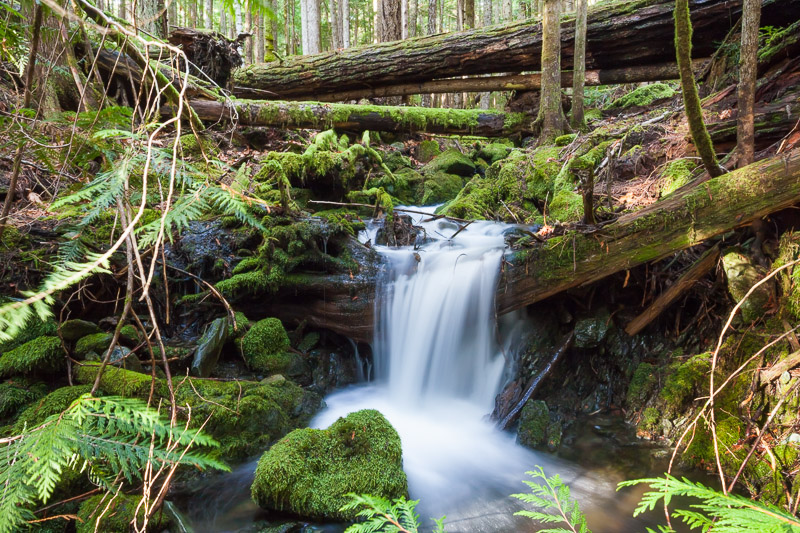
The Ancient Forest Alliance has long called for a legislated, science-based plan to protect endangered old-growth forests on Crown lands, along with regulations and incentives to support the transition to a sustainable, second-growth forest industry. But these regulatory measures aren’t enough to ensure the protection of endangered forests on private lands or secure the long-term economic and social well-being of First Nations communities that want to protect old-growth forests in their territories, but are dependent on revenues from old-growth logging.
To protect old-growth forests, the BC government must commit funding to two key initiatives in its 2020 budget:
- A provincial Natural Lands Acquisition Fund for the purchase and protection of endangered ecosystems on private lands; and
- Conservation financing for the sustainable economic development of First Nations economies in lieu of old-growth logging, tied to the creation of Indigenous Protected and Conserved Areas.
Funding for these initiatives is critical for the large-scale protection of BC’s endangered forests. Even modest funding in the 2020 budget would send a positive signal that the BC government is willing to take action in the interests of BC’s ancient forests and First Nations communities and would create momentum for greater funding commitments in future budgets.
PLEASE SPEAK UP FOR ANCIENT FORESTS AND SUBMIT YOUR RECOMMENDATIONS FOR THE 2020 PROVINCIAL BUDGET TODAY!
Follow these easy steps to submit your feedback:
1) Copy the prepared submission below,
2) Visit the budget consultation website [Original article no longer available], select Make a written, audio or video submission, and hit “next,”
3) Fill in your contact details and skip to the next page,
4) Paste the prepared submission into the “comments” box,
5) Follow the instructions and submit!
CLICK HERE TO SUBMIT YOUR FEEDBACK [Original article no longer available]
Suggested wording for your submission:
Across British Columbia, old-growth forests have significant economic, social, and environmental value.
Old-growth forests:
• Support unique and endangered species that cannot flourish in second-growth forests;
• Are vital pillars of BC’s multi-billion dollar tourism industry, with tourists coming from around the world to visit BC’s old-growth forests and parks;
• Are vital to many First Nations cultures;
• Store vast amounts of atmospheric carbon, potentially allowing local communities to benefit from rapidly expanding carbon markets;
• Supply clean water for communities and for wild salmon, which in turn supports commercial and recreational fisheries; and
• Are important for non-timber products, such as mushrooms, wild berries, and medicines.
Studies have shown that keeping old-growth forests standing can provide a greater overall economic benefit than cutting them down when factoring in the values listed above. Across British Columbia, local communities stand to gain greater revenues and jobs by protecting nearby old-growth forests.
A century of industrial logging has reduced BC’s remarkable old-growth forests to a fraction of their original extent. Today, almost 80% of the original productive old-growth forests on BC’s south coast have been logged, including well over 90% of the highest productivity forests with the greatest biodiversity and biggest trees. As more of BC’s carbon-rich old-growth forests are logged every year, unique species and entire ecosystems are being pushed to the brink of collapse.
I therefore recommend the BC government prioritize the conservation of endangered old-growth forests in its 2020 provincial budget by:
1) Establishing a dedicated $40 million per year BC Natural Lands Acquisition Fund to purchase private lands of high conservation, scenic, cultural, and recreational value from willing sellers to add to BC’s parks and protected areas system. This $40 million annual fund should increase by $10 million/year until the fund reaches $100 million/year.
A $40 million Natural Lands Acquisition Fund would amount to only 0.07% of BC’s approximately $60 billion annual budget and would generate significant financial returns for the province. In fact, studies have shown that, for every $1 invested by the BC government in our parks system, another $9 is generated in the provincial economy through tourism revenues.
British Columbia’s most endangered ecosystems are often found on privately-owned lands, many of which are under threat from logging and real estate developments. Private land trusts, while important, are simply unable to raise enough funds fast enough to buy all of BC’s endangered private lands before many of them are destroyed. The BC government must develop a comprehensive, strategic plan with sufficient, consistent government funding to protect endangered ecosystems on private lands before they are lost.
2) Contributing funding toward the sustainable development and economic diversification of Vancouver Island First Nations communities in lieu of old-growth logging, tied to the creation of Indigenous Protected and Conserved Areas (an initiative known as conservation financing).
Many First Nations communities on Vancouver Island make significant revenues from old-growth logging, yet lack a range of alternative economic development opportunities that would support their local economies into the future and allow them to transition away from old-growth logging, should they wish to. In order to protect old-growth forests, create jobs, and improve community wellbeing, the BC government should support conservation financing solutions as an alternative to old-growth logging, similar to the $120 million (including $30 million in provincial funds) provided to First Nations in the Great Bear Rainforest in support of ecosystem-based management in that region.
This is a fundamentally important precursor for the large-scale protection of endangered old-growth forests in BC and for the NDP government to effectively implement its 2017 election platform commitment to apply ecosystem-based management of old-growth forests across BC.
Note: You may also wish to present your feedback in person to the Select Standing Committee on Finance and Government at a public hearing (in-person or via teleconference). Click here [Original article no longer available] for the dates and locations of public hearings being held across BC and read this handy guide [Original article no longer available] on how to prepare presentations and submissions to the Committee. You can also submit an audio or video submission here. [Original article no longer available]
Questions about the Budget 2020 consultation process? Visit the Budget 2020 website [Original article no longer available] for more information.
Please help us spread the word by sharing this page with your network! We need as many British Columbians as possible to speak up and request funding for old-growth protection in Budget 2020.

